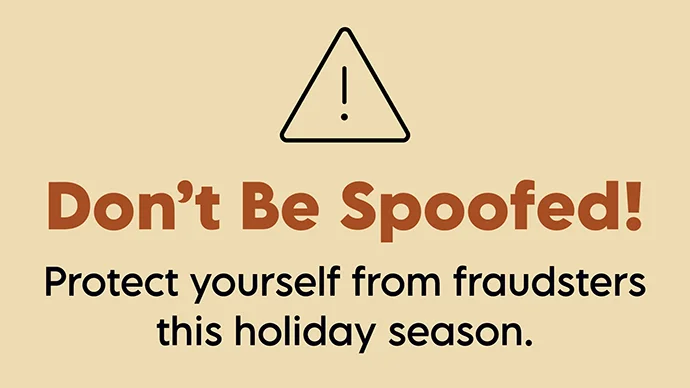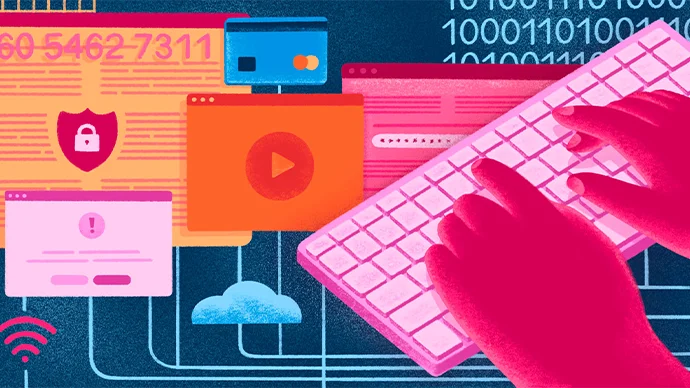
There has been a significant rise lately in phishing scams. These are text messages or emails that attempt to get your personal information. This rise is due in part to improvements in Artificial Intelligence (AI) software, which becomes more sophisticated with each day.
Businesses are using AI to help improve their customer service wait times, for instance, using Chatbots to answer consumers’ frequently asked questions online. Unfortunately, fraudsters are also using this tool to help their “business.” Their techniques have become so clever that it’s getting harder to tell whether the text or email you receive is really from a business you use frequently or even from your credit union.
Before AI, scam emails and texts had common tell-tale traits: mangled sentence structure, poor grammar or spelling, etc. Today, scammers can give the software instructions to generate an email or text in perfectly written English in the format needed, like a legal document, utility bill, or message from your credit union.
To protect yourself from scammers trying to access your credit union account, be suspicious of any text or email that:
- Comes from an unknown number, claiming to be from the credit union, telling you there is a problem with your account.
- Asks you for your personal, confidential information. This includes your online banking username, password, one-time passcodes, Social Security number, account number, debit or credit card number, PIN or CVV.
- Uses scare tactics or claims to be “urgent,” requiring you act immediately to avoid disaster.
- Asks you to transfer money via a link in the message.
Please note that a real Blaze representative will never ask you for detailed account numbers or online banking credentials during an unsolicited call or text message. Providing your online banking credentials could give fraudsters the ability to move your money elsewhere.
If you are unsure about a message claiming to be from Blaze, you can contact us to verify if it is legitimate. If it is an illegitimate request, do not click or respond to it. You may also want to report it to law enforcement or the FTC. Then delete the message and block the sender.
If you suspect you may be the victim of fraud, or if you have any questions, please don’t hesitate to contact us.
Source: cuna.org
Related Articles

Don't Be Spoofed
During this holiday season, fraudsters are hard at work trying to steal your holiday cheer. There are ways to protect yourself from these Grinches.

Recognizing & Avoiding Scams
Blaze will never call, email, or text asking to provide full account numbers, card numbers, PINs, digital banking credentials, passwords, or verification codes.

Tis the Season to Avoid Online Shopping Rip-offs
Online holiday shoppers, gear up and hunker down. You could fall victim to serious scams unless you know how to distinguish a legitimate site from a rip-off.